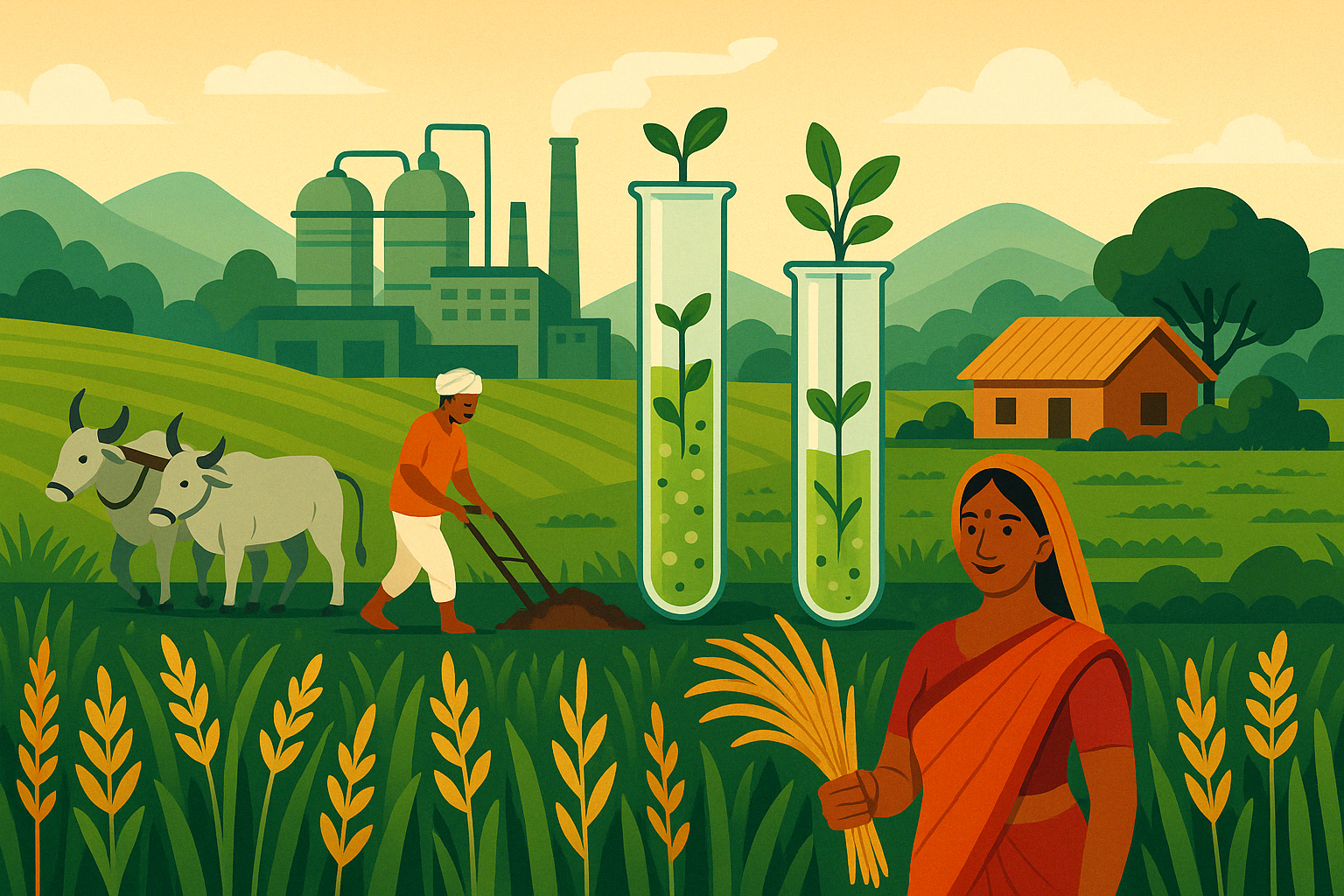Overview
Genomics is a rapidly advancing field with the potential to revolutionise healthcare. Thanks to DNA sequencing technologies, genomics promises to enhance early disease detection, prevention, and precision medicine by identifying an individual's risk for developing diseases and creating personalised treatments. However, several ethical considerations and challenges exist, such as ensuring privacy, preventing discrimination in using genetic data, making genomic technologies accessible and affordable for everyone, and acknowledging the importance of environmental and lifestyle factors.
The decreasing cost of DNA sequencing has made genomic information more accessible, driving innovation with the development of breakthrough therapies, novel diagnostic tools, and more personalised treatment options. Genomics has the potential to shift healthcare from reactive to proactive medicine, saving lives and reducing the economic burden of treating advanced-stage illnesses. In this article, we will explore the impact of genomics on healthcare, ethical considerations surrounding genetic information, the role of artificial intelligence in genomics research, and the prospects of this groundbreaking field.
The global genomics market has been experiencing significant growth, fuelled by technological advancements, increasing applications in various sectors, and rising demand for personalized medicine. The global genomics market is expected to grow to US$ 145 Billion by 2030, with a CAGR of more than 18% from 2023 to 2030.
Key Pillars
Decoding DNA and genomics is revolutionising healthcare. Below are the key pillars and aspects associated with this transformative field:
- Genomic Sequencing: Genomic sequencing is a complex and sophisticated process involving analysing an organism's genetic blueprint, which includes all of its DNA, from the smallest genes to the largest chromosomes. By examining individuals' genetic makeup, scientists can better understand their unique traits and characteristics. This information can identify variations and mutations that may be linked to diseases or conditions, paving the way for new advances in personalised medicine.
- Personalised Medicine: Personalised medicine is a new approach to healthcare. It helps doctors design treatment plans that are unique to each patient. Doctors analyse the patient's genetic makeup to understand what might work best. This way, patients can get the medicine that is most likely to work for them. Personalised medicine can reduce the risk of side effects and make patients feel better. Doctors use special genetic tests to create these personalised treatment plans.
- Disease Prediction and Prevention: The analysis of genomic information can uncover genetic predispositions to various diseases. This knowledge can be leveraged to implement early interventions and preventive measures, mitigating the risks of developing such illnesses. By gaining a better understanding of the genetic factors that contribute to the onset of diseases, healthcare professionals can develop targeted strategies tailored to the specific needs of individuals, aiming to improve overall health outcomes.
- Pharmacogenomics: Pharmacogenomics is a field that delves into how an individual's genetic constitution affects their response to drugs. Customising drug treatments based on genetic information can significantly enhance drug efficacy, minimise side effects, and improve overall patient outcomes. Healthcare practitioners can optimise treatment plans and achieve better therapeutic outcomes by tailoring drug treatments to an individual's genetic makeup.
- Genetic Counseling: Genetic counselling is essential in helping patients and families understand the implications of genetic contributions to disease. As genomic data becomes increasingly available, genetic counsellors provide informed choices and support to individuals. Through their expertise, genetic counsellors assist patients in understanding complex genetic information and its impact on health outcomes, enabling individuals to make informed decisions about their health.
- Ethical and Privacy Considerations: As genomic data accessibility continues to expand, it is imperative to prioritise informed consent and individual privacy protection while addressing genetic discrimination concerns. Establishing ethical guidelines for the responsible use of genetic information is crucial in this regard.
- Research and Discovery: Current genomics research continuously discovers novel genes related to various diseases, opening up new possibilities for developing innovative therapies. Gene-editing tools such as CRISPR-Cas9 have revolutionised the field of molecular biology, enabling targeted gene therapy. This technology offers tremendous potential for precision medicine, allowing for altering specific genes in a patient's genome. CRISPR-Cas9 gene-editing technology is experiencing rapid growth and can potentially transform the treatment of various genetic disorders.
Impact of Technology on Genomics Market
Technology integration into genomics has ushered in a transformative era, revolutionising how we study and understand genetic information. Technological advancements, particularly in DNA sequencing and bioinformatics, have propelled the genomics market into new realms of possibility. High-throughput sequencing technologies, such as next-generation sequencing, have dramatically reduced the cost and time required for genomic analysis, opening doors to large-scale research projects and personalised medicine initiatives. Additionally, the advent of advanced bioinformatics tools, cloud computing, and artificial intelligence has enabled the efficient storage, analysis, and interpretation of vast genomic datasets. These technological strides are not only reshaping the landscape of genomic research but are also driving innovations in healthcare, agriculture, and biotechnology. As we delve into the intricate interplay between technology and genomics, it becomes evident that this synergy is unlocking unprecedented opportunities for scientific discovery, medical breakthroughs, and personalised approaches to healthcare.
Below are some ways in which technology has influenced the genomics market:
- Next-Generation Sequencing (NGS): NGS technologies allow for rapid and affordable sequencing of entire genomes, enabling researchers to study genetic variations in unprecedented detail. This has led to breakthroughs in understanding diseases, developing personalised medicine, and advancing genetic research across various fields.
- Artificial Intelligence (AI) and Machine Learning (ML): The vast amount of genomic data generated by NGS requires sophisticated analysis tools. AI and ML algorithms identify patterns, predict disease risks, and personalise treatment plans. This is leading to faster and more accurate diagnoses and the development of targeted therapies.
- Big Data and Bioinformatics: The analysis of vast amounts of genomic data has become increasingly important in modern-day research and demands that cutting-edge computational tools be employed to effect a thorough and precise analysis. In this regard, bioinformatics has assumed a pivotal role in managing, analysing, and interpreting genomic data, serving as a means of extracting meaningful insights from complex and often intricate datasets.
- CRISPR Gene Editing: CRISPR technology allows for precise editing of genes, potentially leading to the development of gene therapies for various diseases. Clinical trials are underway for CRISPR-based treatments for cancer, cystic fibrosis, and other conditions.
- Direct-to-Consumer (DTC) Genomics: DTC companies offer individuals access to their genetic data through personal DNA kits. This has empowered people to take control of their health by understanding their genetic risks and predispositions.
- Cloud Computing: Storing and analysing genomic data requires significant computational power. Cloud computing has provided scalable and cost-effective solutions for managing and processing large genomic datasets.
- Blockchain: Blockchain technology is being explored to enhance the security and privacy of genomic data. It can provide a transparent and secure way to manage and share sensitive genetic information.
- Rapid Diagnostic Technologies: Technological advancements have led to the development of rapid and cost-effective diagnostic tools based on genomics. This includes the use of genomic information for disease diagnosis, risk assessment, and monitoring treatment response.
Funding and Government Support
- Research Grants: The National Institutes of Health (NIH) supports genomic research in the United States through funding for initiatives like the Human Genome Project and ongoing genomic studies. In the European Union, genomics research is funded through initiatives such as Horizon 2020 and Horizon Europe, part of the EU Framework Programs. These funding sources aim to support genomics research around the world.
- Public-Private Partnerships: Collaborations between pharmaceutical and biotech companies and non-profit foundations are crucial for advancing genomics research and developing innovative solutions and cutting-edge treatments that improve healthcare outcomes. These stakeholders create a collaborative environment that fosters innovation and growth in the genomics industry, enabling remarkable disease prevention, diagnosis, and treatment breakthroughs.
- Regulatory Framework: Regulatory authorities such as the Food and Drug Administration (FDA) and the European Medicines Agency (EMA) play a pivotal role in evaluating the safety and efficacy of genomic-based therapies, ensuring their approval for clinical use. Their crucial role in assessing the regulatory compliance of these therapies and their ability to promote scientific innovation within the pharmaceutical industry is widely acknowledged. As a result, the approval process for genomic-based therapies is stringent and meticulously scrutinised to ensure that patient safety is not compromised.
- Genomic Infrastructure: Biobanks, which governments establish, aim to gather and store a vast amount of genetic information to facilitate research in genomics at a population level. Through international collaborations and data-sharing initiatives, the scope and impact of genomics research is further expanded. These initiatives encourage researchers to work together, leveraging the collective expertise of the scientific community to unlock the full potential of genomics research and gain insights into the complexities of the human genome. By promoting a culture of open data sharing, we can accelerate scientific discovery and stimulate innovation in the field of genomics.
- Healthcare Integration: National healthcare systems can incorporate genomics into standard medical practice with the assistance of government initiatives to encourage the adoption of genomic medicine. These initiatives will provide the necessary motivation for healthcare providers to embrace genomic medicine, which will lead to improved patient outcomes. By integrating genomics into regular medical practice, diagnoses can become more accurate, and treatment options can become more personalised for patients. The success of these initiatives depends on the availability of resources such as funding, infrastructure, and skilled personnel, as well as the willingness of stakeholders to collaborate and share knowledge and expertise.
Key Players
- Illumina: Illumina is a prominent player in sequencing technology. It is responsible for developing instruments and reagents that expedite genome decoding while making it more cost-effective. Its contributions have supported a wide range of research and clinical applications.
- Thermo Fisher Scientific: This biotech company provides various genomics solutions, covering everything from preparing samples to analysing data to support research and development activities in different fields.
- Pacific Biosciences: PacBio is recognised for its advanced sequencing technology, allowing researchers to understand genomes comprehensively. This technology is particularly useful when working with complex genomic structures and variations.
- 23andMe: A company that offers genetic testing directly to consumers is helping individuals learn more about their genetic heritage and potential health risks, enabling personalised medicine approaches.
- Veritas Genetics: Veritas Genetics offers comprehensive genetic reports and whole-genome sequencing to aid in preventive healthcare and personalised risk management.
Perspectives
In recent years, genomic testing has enabled individuals with a family history of cancer to adopt a proactive stance towards the prevention and early detection of cancer. At the same time, studying ancient DNA has provided scientists with valuable insights into human migration patterns and the evolution of disease resistance. However, the ethical implications of gene editing pose a challenge for bioethicists, who must balance responsible development and public discourse.
Genomics is key to unlocking the future of healthcare by harnessing the valuable information stored in our DNA. As we delve deeper into this complex landscape, it is critical to consider the importance of ethical considerations, responsible usage of this transformative science, and ensuring everyone can benefit from it.
Velox Consultants is one of the fastest-growing market research and strategy consulting firms, recently recognised by Clutch. We specialise in providing customised research reports and Go-to-Market (GTM) strategies that cater to the specific needs of companies across the Healthcare and Life Science sectors.
Our team of highly skilled professionals is well-equipped to help your company stay ahead in such a dynamic and competitive market. To learn more about our services or discuss your requirements, please get in touch with us at consult@veloxconsultants.com.





